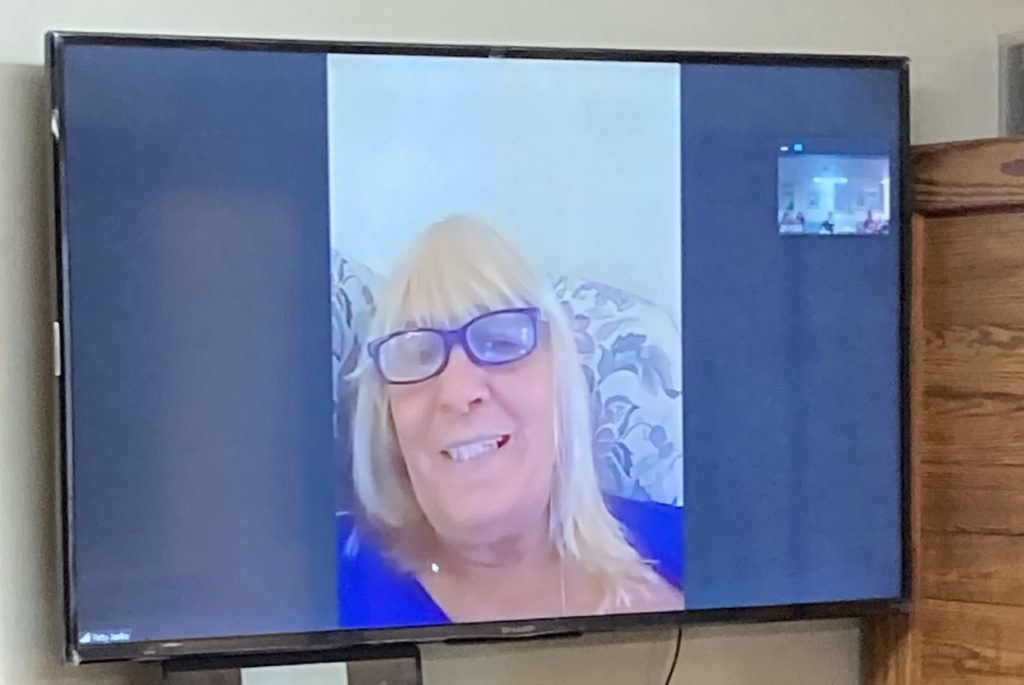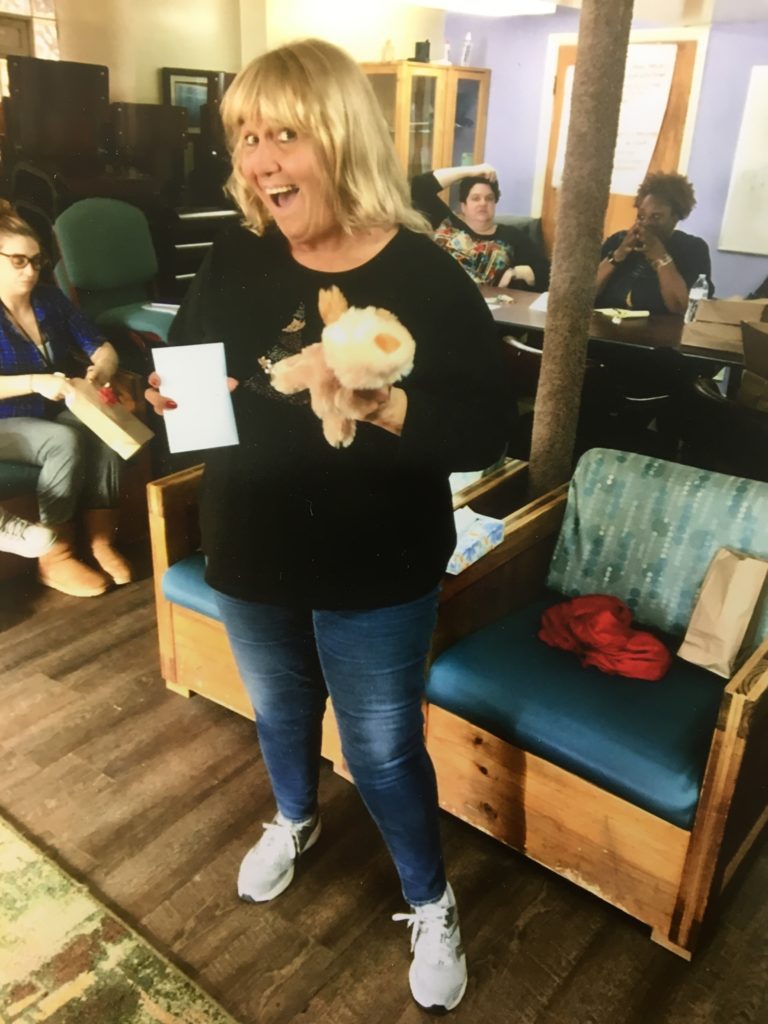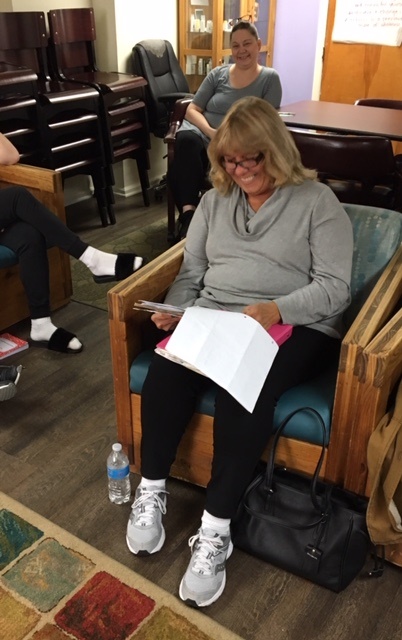By Katie Orr
Sept. 30, 2020
Sojourner House friend Patty Jasko has spoken with Sojourner House and Sojourner House MOMS residents numerous times over the past several years, to share her story of addiction and recovery. Patty scheduled yet another visit – originally set for April – in February, before COVID-19 took hold of the world.
 But the Florida resident wasn’t going to let the pandemic prevent her from seeing, as she lovingly refers to Sojourner House residents, “my girls.”
But the Florida resident wasn’t going to let the pandemic prevent her from seeing, as she lovingly refers to Sojourner House residents, “my girls.”
Via a Zoom meeting on June 18, Patty spoke to the residents about her own struggle with addiction and the ways in which she has overcome the battle. Now in recovery for almost 13 years, Patty started by admitting to the women that she “made a lot of mistakes that can’t be fixed,” but clarified, “I don’t want to talk about how much I used or what I used – I want to talk about how I moved on.”
Patty, age 57, met her drug of choice, crack, in her early 20s, when she was married and had a young son. By the time her son was 2 years old, Patty was divorced, and starting to head down a long, painful road. She was unable to hold down a job and her worsening addiction was putting more and more of a strain on her relationship with her son.
Before her son turned 9, Patty made the difficult choice to give up her parental rights. She believed leaving her son with his father would be a better, safer life for him. Little did she know, she wouldn’t see him for 20 years. Patty told the women: “If I had had a program like Sojourner house, mine and my son’s life would have been better.”
Soon giving up her son, Patty lost contact with her parents and siblings. Over the better part of the next two decades, Patty’s life was filled with turmoil. After being in jail and rehab many times, experiencing homelessness, eviction, and an abusive relationship, getting robbed, robbing others, and having no food, Patty decided it was time to change her life. Now, instead of dwelling on the past, Patty focuses on the ways that she can maintain her sobriety. One of the most crucial ways she has stayed sober? Leaving her old life behind. Though crucial, it isn’t always easy.
“It was so hard to stay away from friends and my old playground,” Patty said, then paused. “But where were my friends when I was locked up?” said Patty, stating that many of the friends she partied with were not there for her when she was at her lowest. Patty emphasized the importance of loving old friends “from a distance.”
The next piece of advice that Patty gave to the women was to have a plan.
“Drugs can win every time,” she said. “You have to make sure you have a strong recovery plan in place to make sure they don’t win again.”
Patty asked the residents what they wanted their legacy to be and went on to say that she had wanted to be a nurse, but could only get so far because of her criminal record. She outlined some crucial steps in making a plan for life post-rehab. Some of these steps include:
- forgiving yourself,
- staying focused,
- saving money,
- securing transportation,
- picking a neighborhood to live in that isn’t drug infested,
- writing down your fears, and
- most importantly, talking about your struggles out loud.
“Closed mouths don’t get fed,” Patty told the residents. She emphasized the importance of having a support system to call every day, or at least every week. She warned, “Don’t make old playmates your support system.” She also said that it is “so important to get involved in A/A and N/A meetings.”
Patty has worked hard to improve her life, and that hard work has paid off: She is a first-time homeowner of a condo in West Palm Beach Florida, a long-time dream of hers. She is strong in her recovery and is very close with her sister, brother, mother, and two nieces, and has an extensive support system. When speaking about life without drugs, Patty told the residents, “My worst day sober is still better than my best day using.


